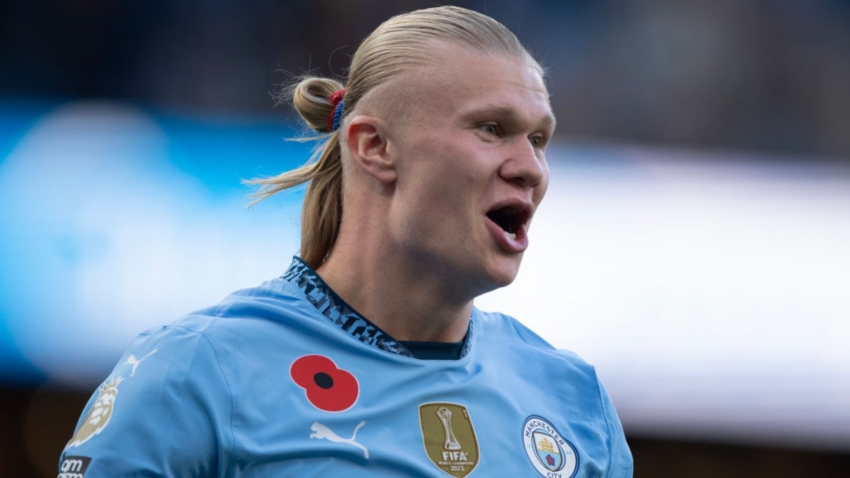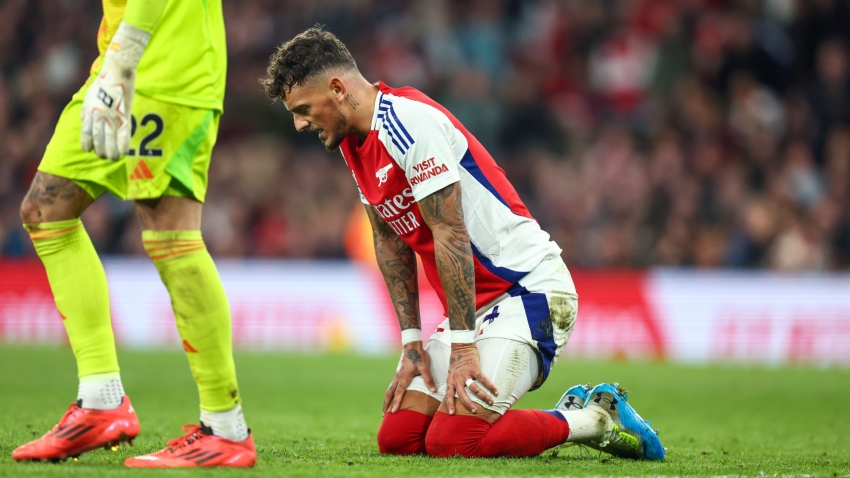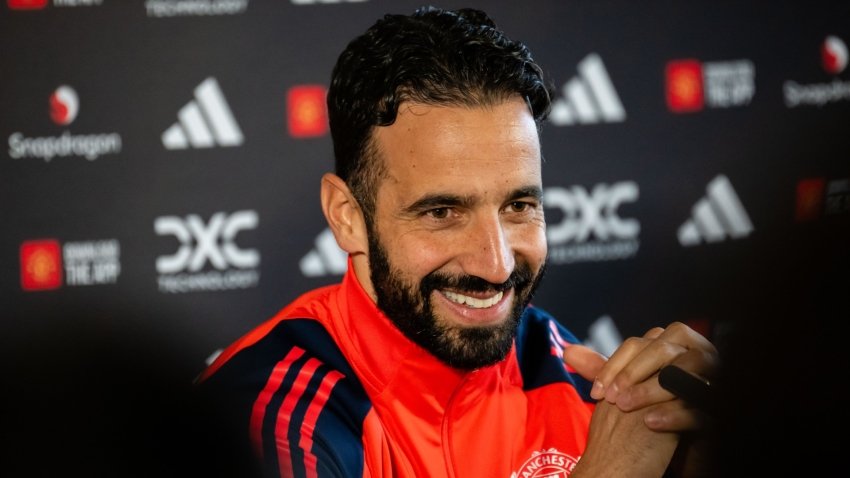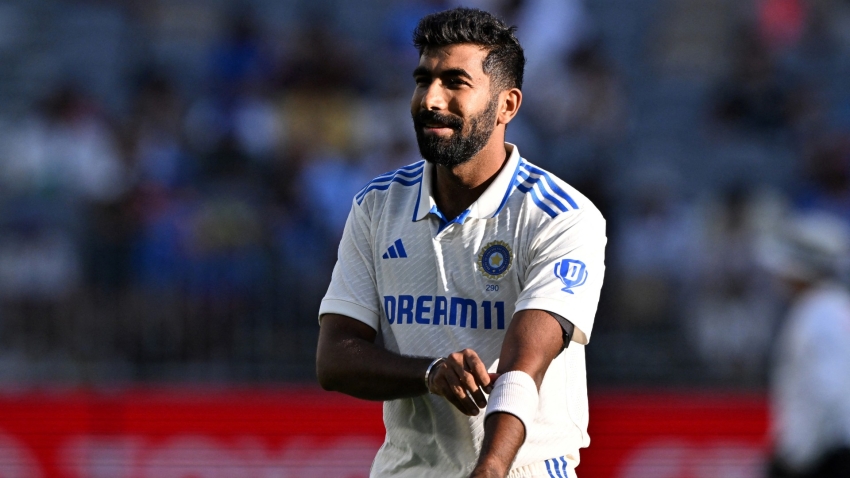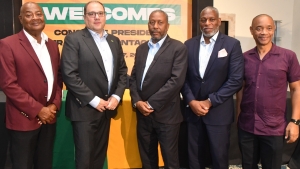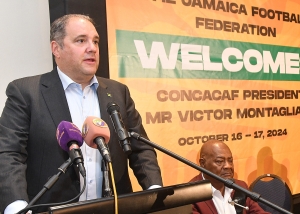Concacaf president Victor Montagliani has underscored the significance of the Nations League, particularly for players from the smaller islands in the Caribbean, as it provides them with a platform to compete against higher-level opposition and develop their skills on the international stage.
Montagliani, who was on a visit to the island, along with Bermuda and St Lucia Football Association presidents Mark Wade and Lyndon Cooper, believes that the tournament, which started in 2018, has been a game-changer for the region, offering crucial opportunities for exposure and growth that may have otherwise been limited.
In fact, the Canadian emphasized the role it plays in not only improving the competitiveness across the confederation but also in attracting heritage players to the Caribbean islands in particular.
“You've had coaches coming to want to coach here; you have players who never would have thought of playing for a country that they play for having the opportunity. Why? Because up until the Nations League, all you can offer them is one game every four years or two games every four years. That's not much of an international career. Now a player can play in the Nations League, can go to the Gold Cup, obviously a World Cup qualifying, and they have more of a body of work to attach themselves,” Montagliani said during a press conference at the Jamaica Pegasus Hotel on Wednesday.

Jamaica in Nations League action against Honduras.
“And at the end, the player wants to sell himself or herself because, don't forget, we also have it on our women's programme in terms of our road to the Women’s Gold Cup, which is in essence the Nations League. So, if you play five, six internationals a year versus one, you're going to be seen more, and so you see more players wanting to play international football because of it,” he added.
Jamaica’s Reggae Boyz have used the tournament to test their mettle against the region’s best teams—United States, Canada, Mexico, and Panama.
However, for other Caribbean nations like St Lucia, Bermuda, St Kitts and Nevis, and even Suriname, who will contest the quarterfinal stage for the first time, the Nations League has been a vital part of their football development, as it assists in nurturing young players who will form the core of their squad for years to come.
Montagliani pointed out that this kind of consistent international exposure is invaluable for teams aspiring to qualify for major tournaments like the World Cup or the Gold Cup.
“I know a lot of my presidents say all the time that they're getting calls from guys saying, ‘My dad was from wherever, and I play in League One or the championship.’ So it's really opening the doors to more players, more coaches, but also to more aspirations for the local players,” Montagliani reasoned.
“I just saw a great story about a 14-year-old goalie making his debut for Turks and Caicos in the Nations League group, so what I'm saying is that it gives an aspiration to a young player to say, ‘If Michail Antonio is playing at West Ham and he's playing for Jamaica now, that could be me down the road,” he shared.
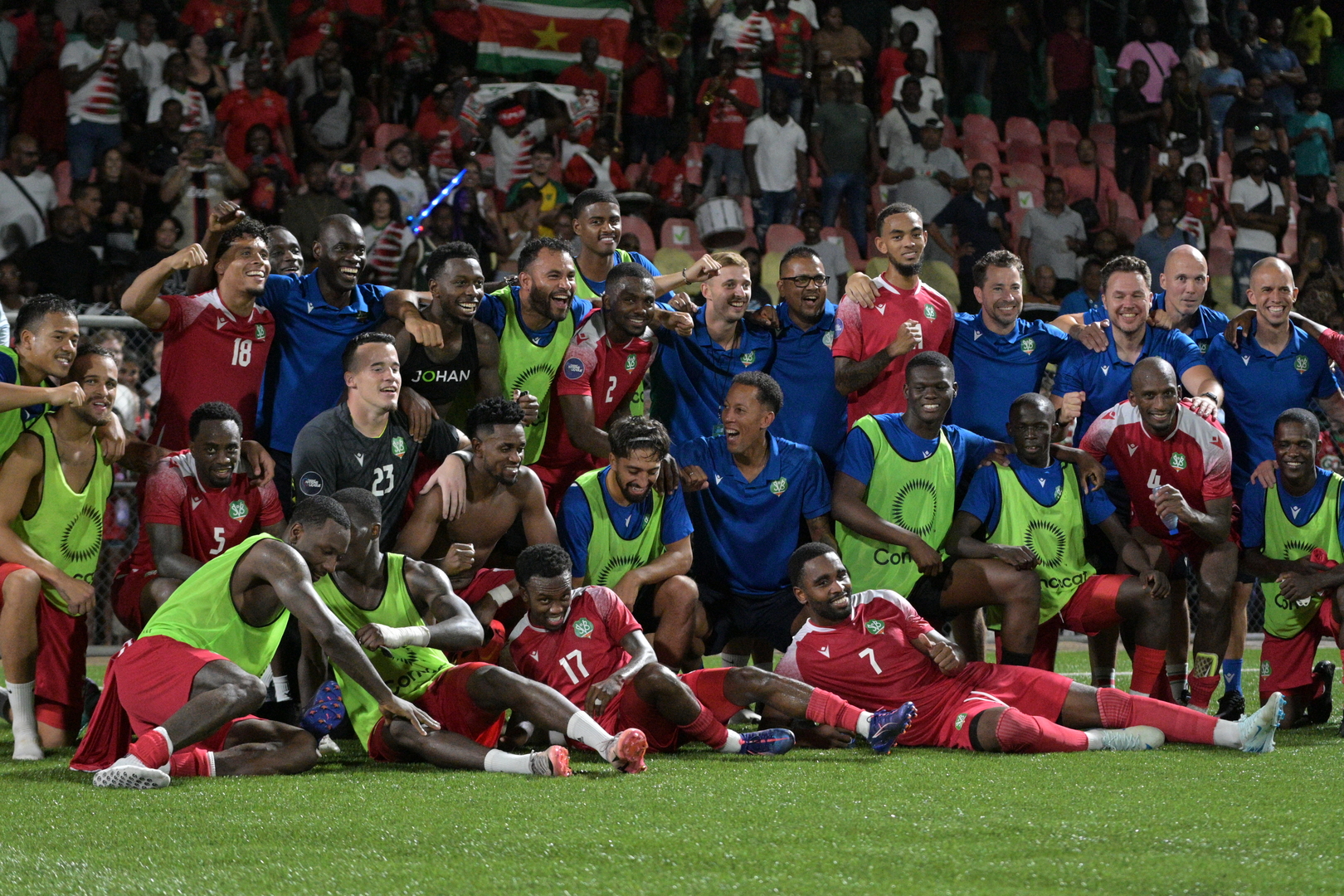
Suriname celebrate their Nations League quarterfinal feat.
However, when it comes to the prospect of Jamaica hosting a future tournament or a knockout round of the Concacaf Nations League, Montagliani tempered expectations. He acknowledged that while Jamaica is a football-loving nation with passionate support, the infrastructure—most notably the National Stadium—currently isn’t up to the standard required to host a tournament of such magnitude.
“First and foremost, the National Stadium needs to be at the level that it sounds like it wants to be at. After having those discussions today (Wednesday), they tell me it's about a three- to four-year window here (for the Stadiums development). So when that happens, we can have those conversations,” he declared.
“But the reality is, just like FIFA, FIFA lives on one competition, the World Cup... that's 95% of its budget. Concacaf’s Gold Cup is about 80% of our budget. So the reality is, it's okay to move it around as it relates to a game or two, maybe even a group, but to have the significant majority of it outside a market that doesn't generate top dollar is not only unrealistic, but it's irresponsible as well. So we need to balance both,” Montagliani noted.
Montagliani went on to compare Jamaica’s situation with the Dominican Republic, in particular, as the Spanish-speaking Caribbean nation is further ahead in terms of infrastructure development, resulting in its hosting numerous club and youth tournaments.
“What's happened is that through One Concacaf funding and through FIFA, you're starting to see a lot of other nations that didn't have any facilities now having facilities as well. So it's not a bad thing, because back in the days, you only maybe had two or three of our member associations having the ability to host a U-17, and that was great for Jamaica.
“But now you have a lot of member associations that have that ability to do it, and we're spreading it around. Not to say that we would not host here (in Jamaica), but now we have more options, which is a sign of early development,” Montagliani stated.
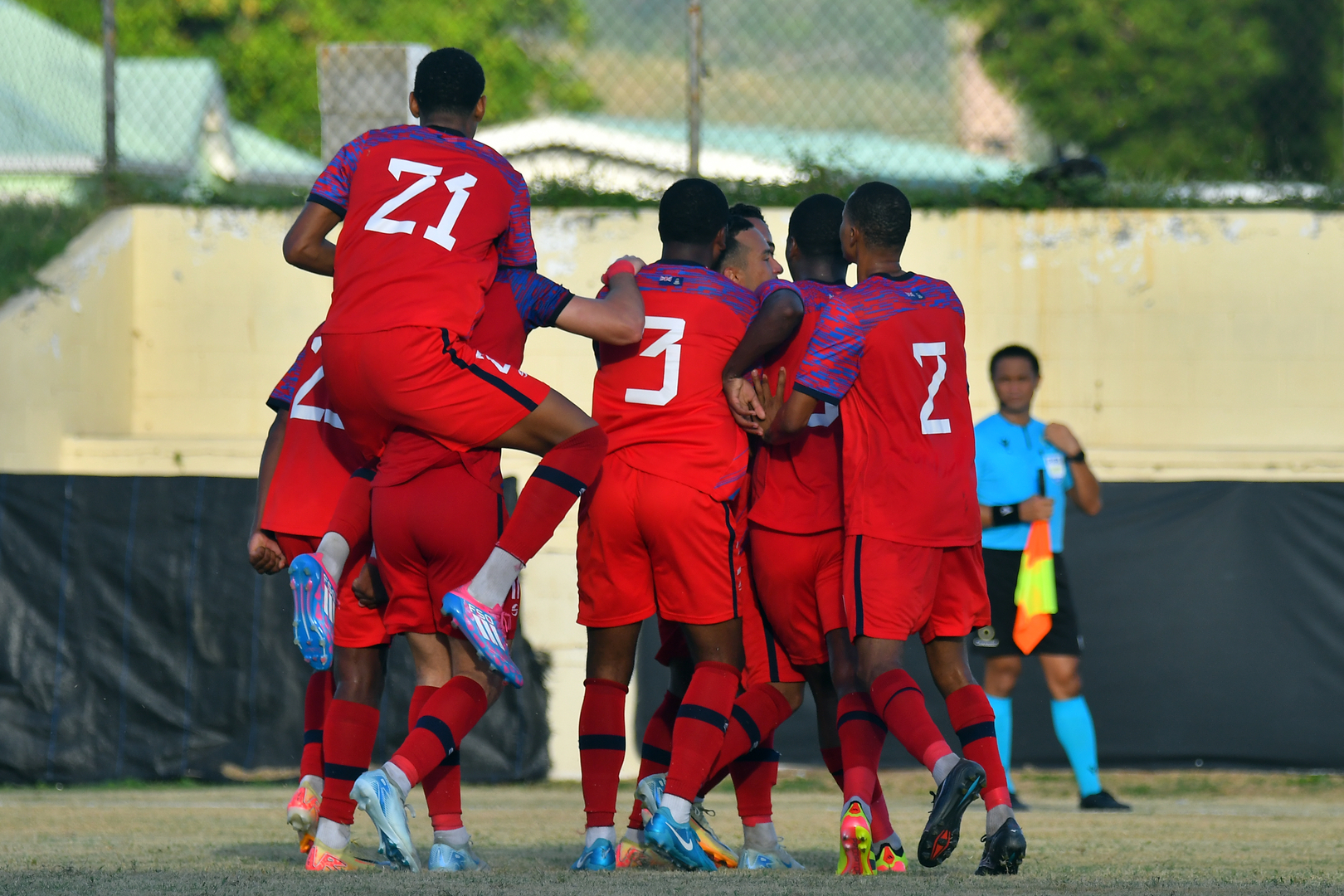
Cayman Islands players celebrate a goal in the Nations League.
He continued: “We are building our own facility in the Dominican Republic, the home of football, where we will have pitches and a small little stadium and facilities. So, you know, we're going to be using that as well for events. The good thing about that is that we can go anywhere now, and so it pushes you (Jamaica) to build your standards.
“Before, if you were the only one in town and you had no incentive to really push the standards to a top, top level, that’s fine, but now you almost have to, because if you don't, you won't even get looked at in the RFP process. But the good news is that we no longer limit it to two or three options.”
As Concacaf continues to expand the reach and impact of the Nations League, Montagliani reiterated his commitment to ensuring that all member nations, regardless of size, have access to opportunities that will help them grow.
“Having our One Concacaf programme increases not only funding but also accountability and responsibility. You can't just keep giving people fish; you need to teach them how to fish as well, and I think we've done a good job with that. In the end, it's always about the football, and really, one of the biggest successes I think that turned around this organisation is the Nations League,” he ended.









